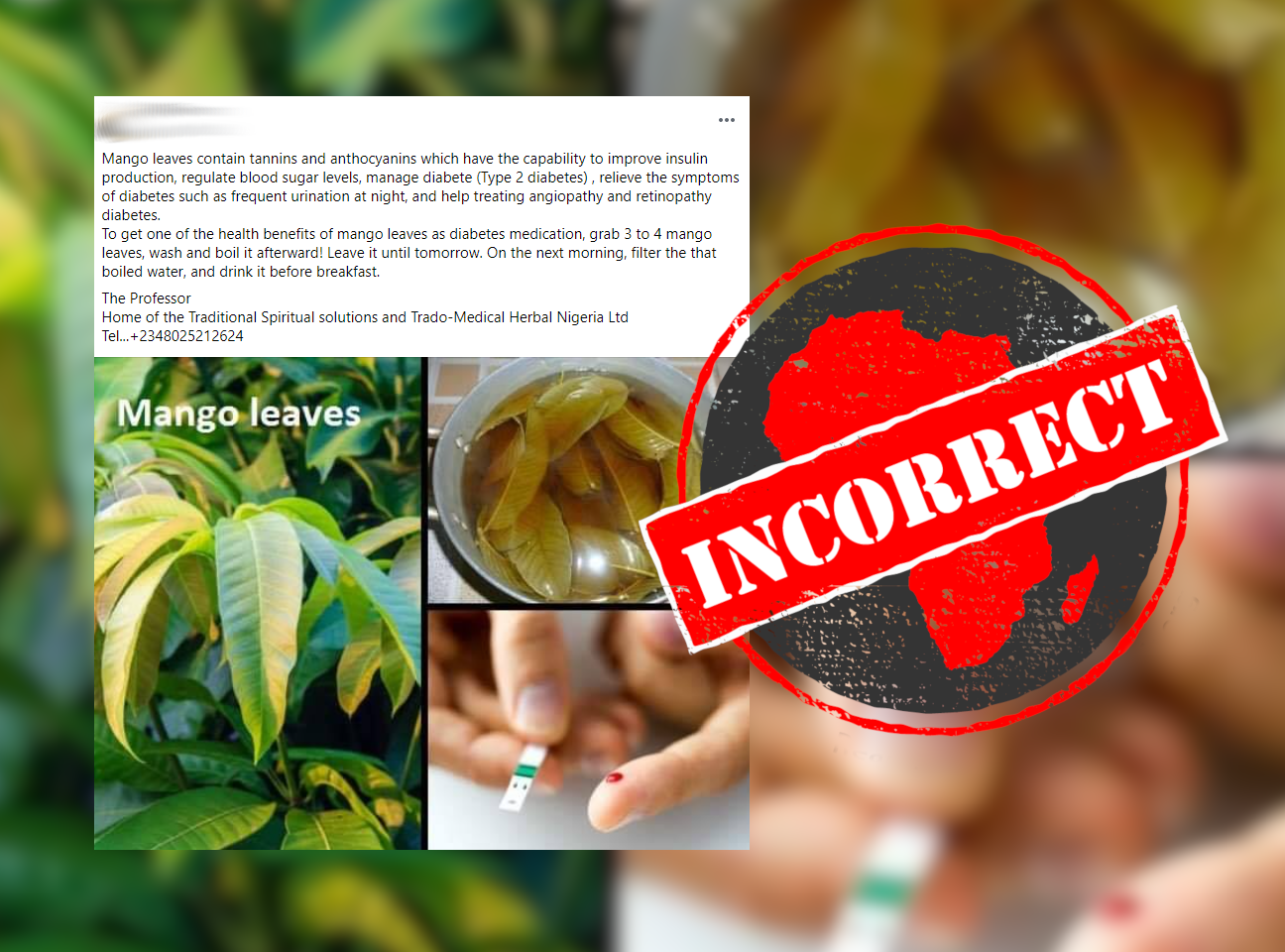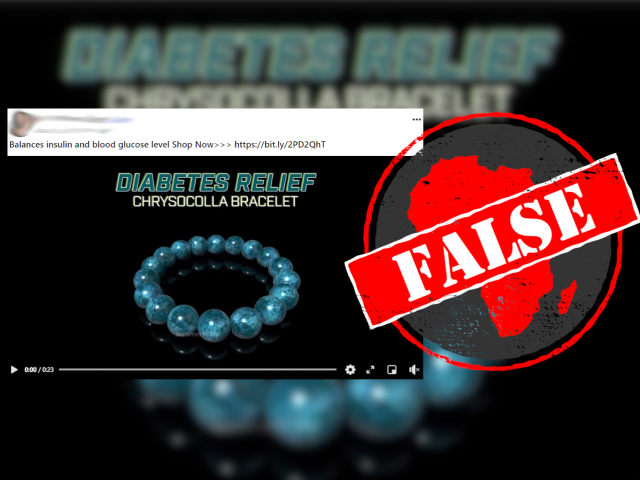A message posted on Facebook in Nigeria claims mango leaves can be used to manage type 2 diabetes.
The post reads: “Mango leaves contain tannins and anthocyanins which have the capability to improve insulin production, regulate blood sugar levels, manage diabetes (Type 2 diabetes), and relieve the symptoms of diabetes such as frequent urination at night, and help treating angiopathy and retinopathy diabetes.”
Diabetes is a chronic metabolic disease which leads to high blood sugar because the body does not make enough insulin, or does not use the insulin it produces properly. The body uses insulin, a hormone, to process sugar and fat.
Type 1 diabetes happens when insufficient insulin is produced while type 2 diabetes is because the body is unable to effectively use insulin.
The Facebook post describes how to prepare and use an infusion from mango leaves.
But is there medical evidence behind this claim? We checked.

‘Won’t advise anybody to take it’ – expert
Globally, about 400 million people have diabetes, with a majority living in low- and middle-income countries. The disease leads to 1.6 million deaths annually, according to the World Health Organization.
Some studies have documented some anti-diabetic properties of mango extracts. A review of the pharmacological activities of the fruit and its leaves says it “is a potential source of anti-diabetic drugs”.
“Some of these plants have all kinds of active ingredients in them,” Aihanuwa Eregie, a professor of medicine and endocrinology at the University of Benin in southwestern Nigeria, told Africa Check.
“But what I would prefer is if these things are studied scientifically, whatever active ingredient present is identified, isolated and tested over time. But right now, I would not advise anybody to take [this infusion],” she said.
She said: “A properly trained doctor, who has specialised in diabetology – an aspect of endocrinology – will not prescribe mango leaves.”
The US-based Centers for Disease Control and Prevention say diabetes can be managed with a healthy diet, insulin and other injectable oral medications, to help manage blood sugar, blood pressure and cholesterol levels.
Republish our content for free
For publishers: what to do if your post is rated false
A fact-checker has rated your Facebook or Instagram post as “false”, “altered”, “partly false” or “missing context”. This could have serious consequences. What do you do?
Click on our guide for the steps you should follow.
Publishers guideAfrica Check teams up with Facebook
Africa Check is a partner in Meta's third-party fact-checking programme to help stop the spread of false information on social media.
The content we rate as “false” will be downgraded on Facebook and Instagram. This means fewer people will see it.
You can also help identify false information on Facebook. This guide explains how.



Add new comment